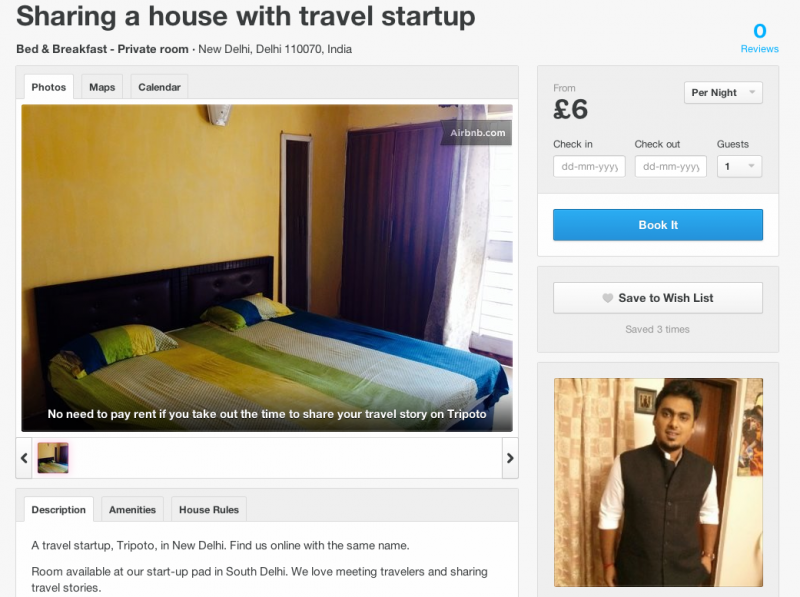May 2014, Singapore
Airbnb evictions: a storm in a San Francisco teacup?
A story published by the San Francisco Chronicle paints a worrying picture for Airbnb but these are just teething problems? Pamela Whitby finds out
Like Jeffrey Katz, a San Francisco based teacher who found an eviction notice on his front door, Anirudh Gupta is an Airbnb host. Gupta is also the founder of Tripoto, a New Delhi-based startup that is in the process of fundraising for its crowdsourced content platform.
Gupta’s pitch is that guests can stay with him for free if they are willing to share their travel stories on the Tripoto platform. “You won't just be getting a room during your visit but a chance to interact with a talented team of travel enthusiasts working on an awesome product,” states the blurb on Airbnb.

So is Gupta, an evangelist of the peer-to-peer model, worried about the story published this by the San Francisco Chronicle this week that Airbnb eviction notices are soaring?
Not really. “There is always some churn when something new takes shape,” he says. “This [the San Francisco evictions] is a clear problem of incentives where the property owners or the governments have no incentives to be part of this sharing economy.”
Instead of thinking about killing the sharing economy, he argues, it might be better to think of a realignment of incentives. One solution would be for governments and property owners to get a share of the pie too. “Airbnb is facilitating the optimal use of vacant property, and making the market more efficient in a way and I am sure nobody would want that to die,” he says.
After all, as the San Francisco Chronicle reports Katz wasn’t “taking rental stock off the market”.
Teething problems
For travel industry mentor, Don Birch, these “are just teething problems for an industry that has just started”.
While the peer-to-peer model may be relatively new, given Airbnb’s rapid growth it will, no doubt, be quick to address the problems. Globally more than 11 million guests have stayed in an Airbnb home since the company launched and growth doesn’t show any sign of abating. This year in Singapore alone, the company has booked 50,000 rooms with travellers paying an average of $145 a night. To highlight the growth further, in 2013, the number of Airbnb searches from Singapore jumped 200% on the previous year.
In a company press release Alan Chang, Managing Director for Northeast Asia at Airbnb, says Asia is one of the fastest growing regions for the company. “We’ve been seeing more and more travellers here opting for unique accommodation types that offer more than just a place to stay,” he says.
Today Airbnb announced new terms of service, which will come into effect on April 30 this year. This, it says, will better service its rapidly growing number of hosts. As part of this it has opened an international hub in Ireland to interact with its community outside the US. US users will continue to contract with Airbnb Inc.
So teething problems, yes, but Airbnb, and the sharing economy, is here to stay.
Join us in Singapore to hear more about the fast-growing Asian market

